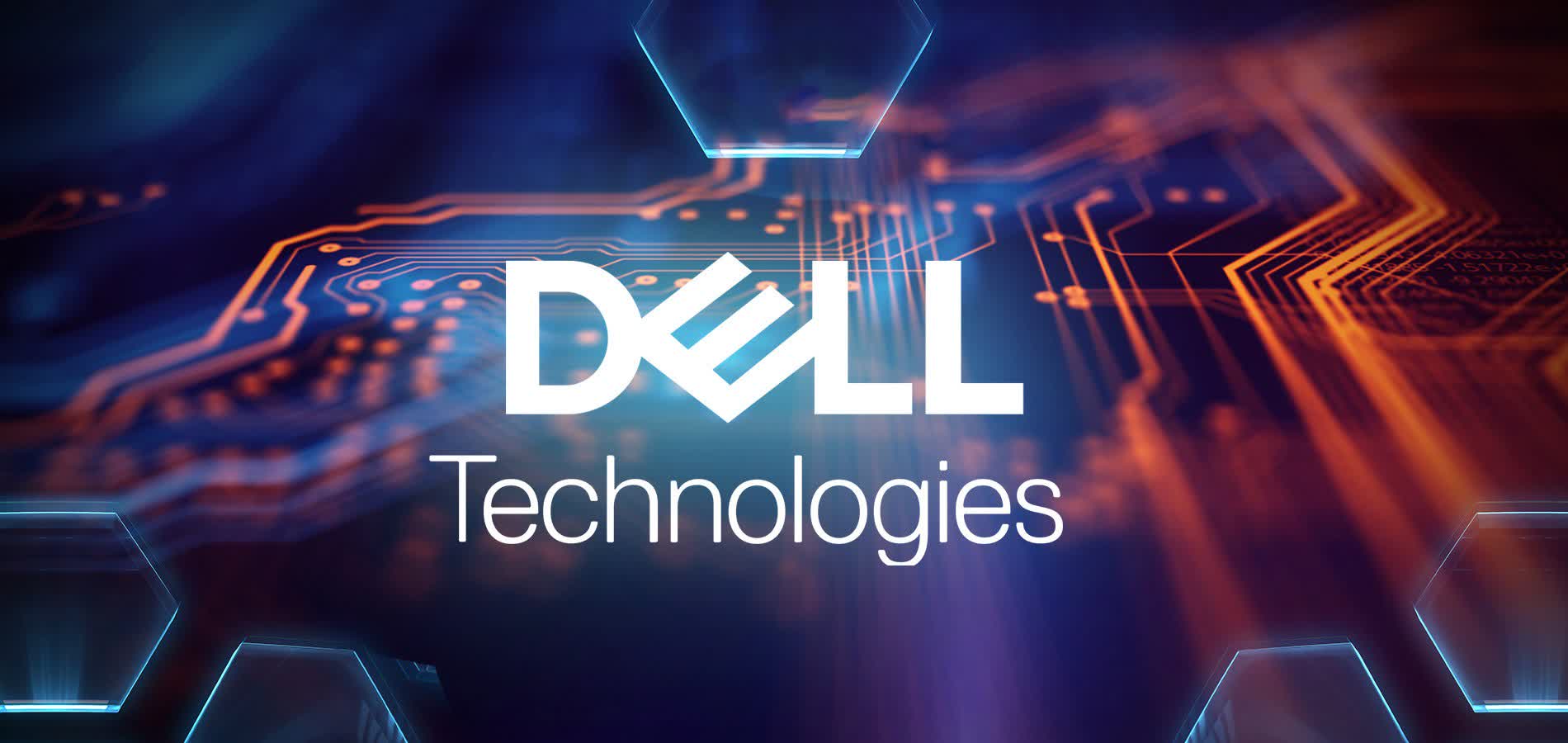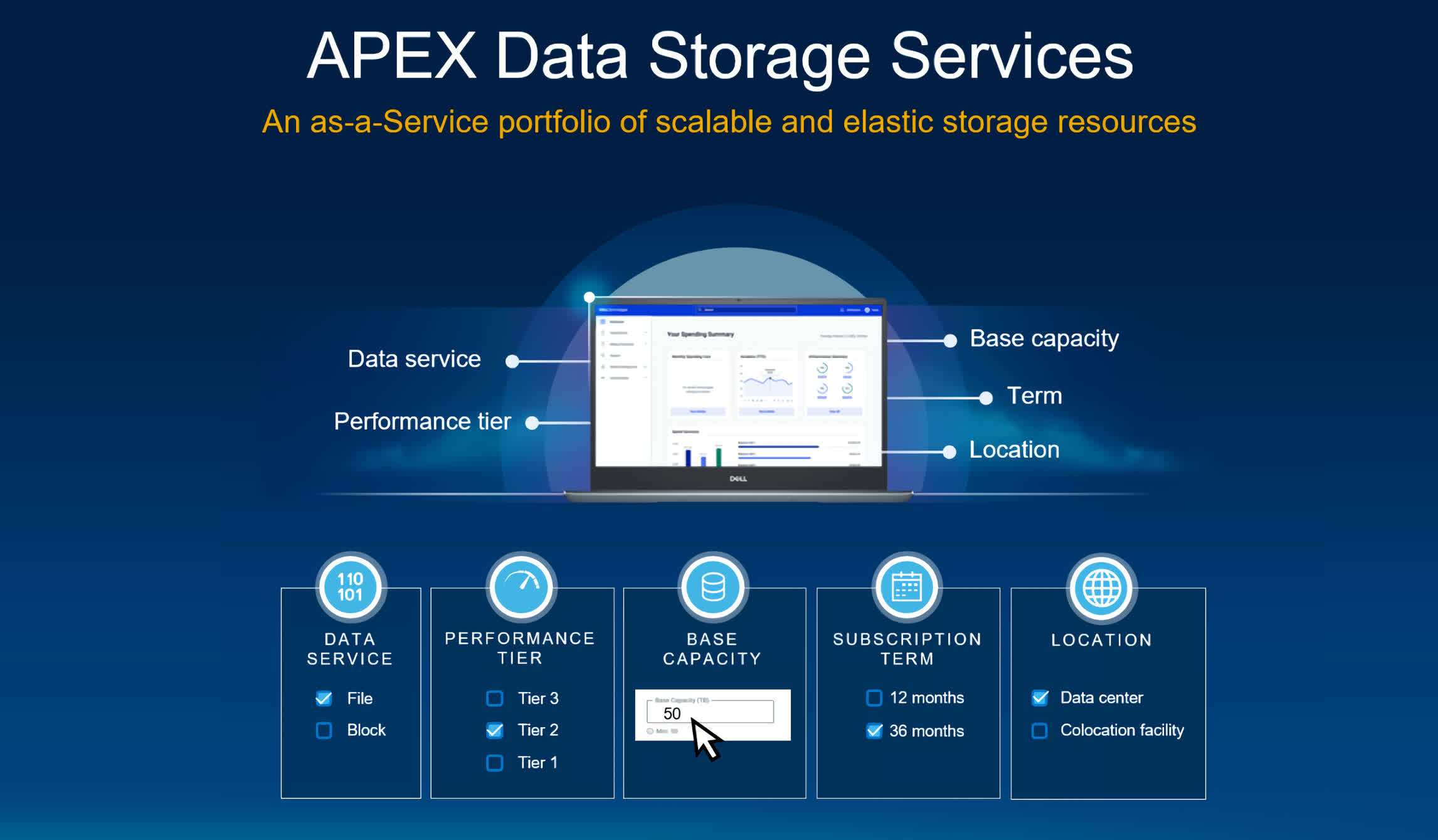The big picture: Anyone who's been following IT trends for the last few years has come across the “as a service” moniker. Originally introduced as a radical new way to sell business software (SaaS) in the early 2000s, the as-a-service concept has exploded across all areas of IT and even into mainstream consumer life. Groceries as a service? Try Amazon Fresh and Instacart. Music as a service? How about Spotify and Apple Music. You get the idea.

Sometimes all it takes to trigger a big move is to take the first step. With its latest Apex “as a Service” offerings unveiled at Dell Technologies’ TechWorld event, it looks like the company is doing just that. To make sense of it all, let’s put it in context.
One of the last holdouts to the flexible consumption model that underlies various “as a service” offerings has been enterprise IT hardware that lives within the walls of an organization. Sure, we’ve seen cloud computing services from the likes of Amazon AWS, Microsoft Azure, IBM Cloud, etc. grow enormously over the last decade, and particularly in the last year.
However, even with that amazing growth, it's well understood that the vast majority of business computing still occurs within corporate data centers or other private locations. The exact percentages vary, but even a conservative estimate of 75% onsite and 25% in the cloud highlights how incredibly important “local” computing efforts remain. Of course, this reality has also led to the explosion of interest in hybrid cloud, which attempts to unite these two groups of computing resources into a cohesive whole.
An important characteristic of all this local computing infrastructure—which sometimes gets generically relabeled as private cloud—is that most of it has been purchased in a traditional manner: the company running or managing the data center makes a capital expense purchase (capex) of the necessary equipment, takes ownership of it and, in most cases, takes on the responsibility of installing, managing, and maintaining it. That’s the way things have worked for decades, but based on these new Dell Apex offerings, the times, it seems, are a’ changing.

With its greatly expanded array of Apex services—incorporating storage, compute, networking and more—Dell is giving its customers the ability to move to an operational expense (opex)-based model for using its storage, servers, and other IT equipment.
Through the combined portal of its new Apex Console, customers can now purchase access to various types of storage, computing, and other hardware resources on either an as-needed, consumption-driven basis or a subscription basis.
Dell Tech expanded its range of Apex Data Storage Services and debuted new Apex Hybrid Cloud and Apex Private Cloud offerings (built on Dell’s existing Dell Technology Cloud). In addition, the company renamed and repositioned some of its consulting, remote management, and flexible usage offerings under the Apex brand. Collectively, these new services move Dell Tech into a more cloud computing-like business model.
A significant difference with Dell’s Apex offering—as with HPE’s conceptually similar Greenlake products, or with hardware-based private cloud offerings such as AWS Outposts or Microsoft’s Azure Stack—is that Dell has to send equipment to a company’s location, set it up, attach it to a company’s existing IT resources and configure it for use. So, instead of being ready for use in 5 minutes, it can take up to 14 days. Given that most of the efforts leveraging these types of technologies will be more premeditated activity and less spontaneous experiment, the additional time is not likely to be a big concern.
At Dell TechWorld, the company also discussed a partnership with Equinix, a co-location facility with numerous sites around the world. Leveraging that connection, interested parties could potentially get access to these “as a service” offerings faster, since Dell will be stocking these facilities with the necessary hardware. The Equinix connection also allows companies the flexibility to try these “as a service” offerings without any interruptions to their existing environments.
Dell seems to have seen the writing on the wall in terms of how modern IT departments have begun to work and is making this shift a key part of its future direction
A few interesting, but not necessarily obvious, similarities that the Apex model has to public cloud offerings include the ability to quickly ramp up capabilities as needed. Though the initial install takes longer, Dell provides hardware that has more capabilities than a customer initially requests, giving it the flexibility to immediately turn on additional storage, compute power, etc. as requested. In addition, as with public cloud providers, Dell plans to offers performance guarantees, provide the ability to monitor the performance of workloads, and upgrade the hardware as necessary.
To be clear, Dell will continue to sell its hardware in the traditional manner for customers who continue to want to purchase it that way. Given the wide-ranging nature and intensity of the announcements, however, it’s clear that the Apex strategy represents a significant pivot for the company.
Realistically, initial take-up of the Apex model may only represent a modest percentage of its total sales, as companies experiment with the opex, consumption-based model on a few projects here or there. Still, Dell seems to have seen the writing on the wall in terms of how modern IT departments have begun to work and is making this shift a key part of its future direction.
A full-scale switch to hardware-as-a-service certainly won’t happen overnight, but it does look to be taking some big steps forward.
Bob O’Donnell is the founder and chief analyst of TECHnalysis Research, LLC a technology consulting firm that provides strategic consulting and market research services to the technology industry and professional financial community. You can follow him on Twitter @bobodtech.
https://www.techspot.com/news/89563-dell-brings-hardware-service-mainstream.html